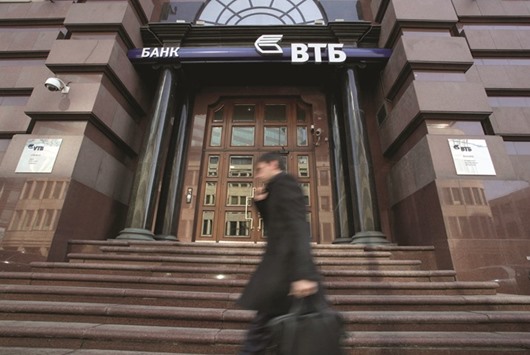Investment banking deal volumes in Russia rose almost 50% in 2016, with domestic advisors leading the charge, but continued sanctions and the economic contraction mean the industry remained a shadow of its former self.
According to Thomson Reuters data up to December 14, equity capital market (ECM) volumes in Russia have more than doubled to $3.1bn this year, while capital raisings in debt markets (DCM) rose by a quarter and the value of takeover deals (M&A) involving Russian targets was up 65% at $36.5bn.
But the combined total is down by 50% on three years ago.
Meanwhile total fees for M&A, ECM, DCM and loans rose to $359mn from $241 in 2015, with the “bulge-bracket” banks such as JPMorgan, UBS and Goldman Sachs increasing their share of the pie but remaining well below their 2013 market share.
“Immediately after the sanctions were imposed there was some confusion while banks learnt how to comply with them.
Now that the financial community has had time to fully understand the rules the situation has improved,” said Riccardo Orcel, deputy chief executive of VTB Group, Russia’s second-largest bank, which itself is a target of the Western sanctions.
International banks’ apprehension about dealing with Russia has helped VTB’s investment banking arm VTB Capital increase its Russian fee income this year to over $90mn from $56mn in 2015, making it the only major industry player to exceed what it made in Russia in 2013.
Starting in 2014, sanctions limited access to international capital for certain Russian businesses, scaring away investors and spooking compliance departments at top banks.
International banks can do deals but they have to ensure proceeds from capital raisings are not used for any purpose restricted by sanctions.
Russia’s export-dependent economy sank into recession after it annexed Crimea in 2014 and took a hit from the sanctions which followed and a further blow from falling oil prices. But officials expect it to tip into growth next year.
The Western and retaliatory Russian sanctions are still in place but Russia is once again increasing in significance for some investment bankers, especially amidst speculation that the election of Donald Trump as president of the United States could result in the easing of sanctions.
“Everyone is cautious but there is a hidden consensus.
There are early bird investors expecting an easing of sanctions and that the improvement of the economic situation is more rapid than the official estimates,” said Giovanni Salvetti, head of Russia and CIS at Rothschild Global Advisory. In addition Russia is looking to plug gaping holes in the national budget with the sale of state holdings in close to 2,000 firms, opening opportunities for investment banks seeking work on the sales.
Earlier this month a state-owned 19.5% stake in Rosneft was sold for €10.5bn ($11bn) to Qatar’s sovereign investment fund and commodities trader Glencore, with Italian bank Intesa Sanpaolo advising the state-owned vendor, Rosneftegaz.
Intesa is now deciding whether to help fund the acquisition.
However, none of the global investment banking giants was involved in this year’s biggest ECM, DCM or M&A deals in Russia.
Orcel said the motivation for big banks withdrawing from the Russian market also reflected a need for a broader retrenchment rather than just being deterred by the sanctions, as it got too costly to be everywhere in the world.
“The question is not whether they will return to Russia specifically, but whether they will return to emerging markets in general...(they) will be more active in Russia but I don’t see the bulge-bracket firms building large local teams or dedicated emerging market businesses as in the past,” he said.

A pedestrian walks past a branch of VTB bank in Moscow. International banks’ apprehension about dealing with Russia has helped VTB’s investment banking arm VTB Capital increase its Russian fee income this year to over $90mn from $56mn in 2015, making it the only major industry player to exceed what it made in Russia in 2013.
